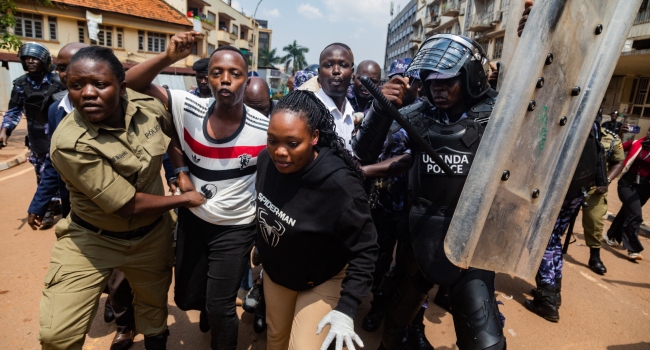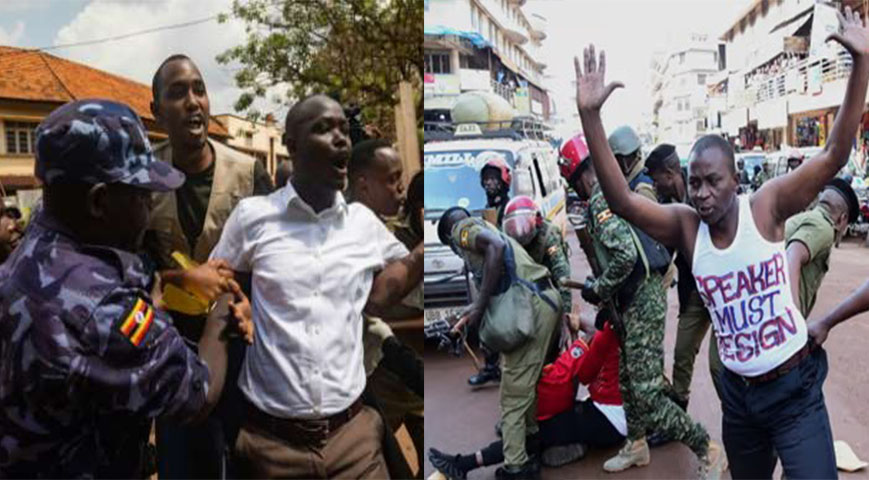Dozens of protesters in Kampala were charged and detained after participating in anti-corruption rallies on Tuesday, defying an official ban.
Around 60 individuals, including notable TV and radio presenter Faiza Salima and three young protest leaders, were charged as a "common nuisance." The Ugandan president had warned against the protests, citing severe consequences, and deployed riot police to manage the unrest.

The protests, organized online by young Ugandans inspired by Kenya's Gen-Z-led movements, highlighted widespread corruption concerns in Uganda. The country ranks poorly on Transparency International's corruption index, 141 out of 180 nations.
Prominent figures like social media influencer Samson Kiriya were arrested during the protests. Lawyer Ashraf Kwezi reported that the charges were frivolous, emphasizing the rushed nature of the trials.
Did you read this?
Three organizers, George Victor Otieno, Kennedy Ndyamuhaki, and Aloikin Praise Opoloje, also faced charges after marching toward parliament. Uganda Law Society President Bernard Oundo stated that 50 people were charged in one hearing and are scheduled for further court appearances between July 30 and August 8. Five others were charged separately.

Human Rights Watch researcher Oryem Nyeko criticized the arrests, reflecting Uganda's poor human rights record. On the eve of the rallies, authorities besieged the opposition National Unity Platform (NUP) headquarters, arresting three MPs. NUP leader Bobi Wine, a former presidential candidate, praised the protesters' courage.
Corruption scandals have plagued Uganda, with high-profile figures recently sanctioned by the US and UK. Despite ongoing trials of several ministers and civil servants for embezzlement, no charges have been brought against parliament speaker Anita Among.
Human rights lawyer Ezra Rwashande participated in the protests and vowed to continue the fight against corruption until officials are held accountable.









